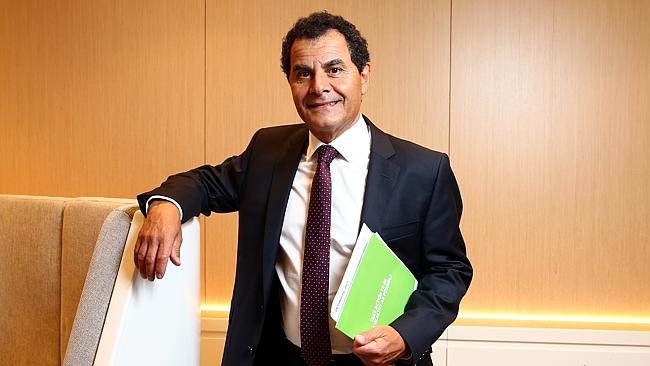
Medibank boss George Savvides has argued that some organisations are stuck in the past, as he defends the insurer’s tough stance on hospital negotiations.
Responding to accusations the company was pushing hard on contract negotiations to benefit its shareholders, Mr Savvides said that was not the primary objective, saying it was about improving care outcomes and reducing “avoidable costs”.
“If we do nothing, and passively accept the cost of errors, then premiums will continue to rise and, at some stage, cover will become unaffordable,” he writes in The Australian today.
Medibank has been in the spotlight over its negotiating tactics with private hospital operator Calvary. The two are in mediation talks after the health insurer terminated its contract with the hospital after negotiations broke down, which Calvary has said was because it would not agree to so-called “quality and safety” measures.
A key issue the two companies cannot agree on is a list of 165 “highly preventable adverse events”, which Medibank has said it will no longer cover.
Calvary’s national chief executive, Mark Doran, said the “safety and quality” measures proposed by Medibank were not in the best interests of either Calvary’s patients or Medibank’s members. “Calvary supports an industry-wide approach and is prepared to engage with insurers, clinicians, the private hospital industry and the statutory authority to achieve evidence-based industry-wide approach,” he said.
Mr Doran said Calvary wanted to measure its performance against a quality framework independently and regularly audited.
“We believe any quality indicators included in health insurer contracts should be consistent with the framework developed by the Australian Commission for Safety and Quality in Healthcare in consultation with the industry,” he said.
“To that end, Calvary has agreed to be a trial organisation in the work being undertaken by the ACSQHC and the Independent Hospital Pricing Authority.”
Mr Savvides argues it is time for hospitals to share the load and play a role in improving outcomes for patients.
He also warns that an ageing population, increase in chronic conditions, costly new medical technology and the absence of integrated care are driving up complexity and costs, adding that Australia’s system is not dealing well with the challenge.
Australia’s second-largest health insurer, Bupa, and NIB, have both backed Medibank in its stance.
Dwayne Crombie, managing director of Bupa’s Australian health insurance unit, has argued that every health insurer must get better value for the customer, warning there was going to be a greater “blowtorch” on poor quality or in appropriate care.
Source:Australian
